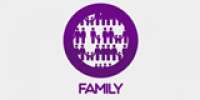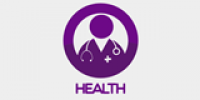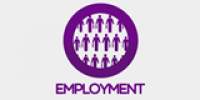In January 2022 ILGA-Europe compiled a submission to the European Commission’s public consultation ahead of the 2022 Rule of Law report. The submission covered rule of law developments related to LGBTI rights in the year 2021 in 13 EU Member States: Bulgaria, Croatia, Czech Republic, Denmark, France, Hungary, Latvia, Lithuania, Poland, Romania, Slovenia, Slovakia and Spain.
ILGA-Europe Reports and Other Materials
In this section you will find all our past and the most recent publications in electronic format.
This report is intended as a resource for donors and prospective donors, including governments, to inform them in their grantmaking efforts to support LGBTI organisations and movements in Europe and Central Asia.
The first ever EU LGBTIQ Equality Strategy, adopted in November 2020, is a major step in the EU’s overall commitment and detailed efforts to ensure the fundamental rights of LGBTIQ people and fight
ILGA-Europe, EL*C, TGEU, OII Europe and EGLSF submitted to the Parliamentary Assembly of the Council of Europe a briefing note on violence and discrimination against LBTI women in sport.
Find here our reports addressing LGBTI Youth Homelessness in Europe and Central Asia.
This is the most in-depth investigation into the communications strength of the movement in Europe and Central Asia.
It is a pivotal moment in Europe, and beyond, when it comes to discussions of gender and gender equality.
Bodily autonomy – making one’s own informed decisions about one’s body and what happens to it – is a fundamental human right.
This report provides a compelling challenge to assumptions about the funding landscape in Europe and Central Asia.
The report provides an overview of the different legal gender registration models in Europe.
This report shows where funding is needed and signposts ways for funders to fund LGBTI activists in an ever-more strategic and sustainable way.
The report provides a guidance for LGBTI organisations on fundraising from individuals in Europe and Central Asia.
This interactive resource tries to answer the What, Why and How questions on community organising based on the current knowledge from the European LGBTI movement.
This toolkit will explain the major challenges intersex people face in different areas of life, set out intersex people’s demands, provide information about current political developments, as well as give advice on how to become a great intersex ally.
This paper was commissioned by ILGA-Europe, to examine how the right to freedom of religion or belief intersects with other human rights, including the rights to freedom of expression, freedom of a
Transposition of the Recast Asylum Procedure Directives and of the Recast Reception Conditions Directive (Published : September 2014)
Published : September 2014
Author: Sabine Jansen
Editor: Joël Le Déroff
By Professor Steve Peers, Human Rights Centre, University of Essex on behalf of ILGA-Europe.
December 2013
Protecting LGBTI asylum seekers. Published in 2012
This Catalogue is a civil society follow-up to the pioneering work of the Council of Europe Commissioner for Human Rights, Hammarberg, and his 2009 Issue Paper.
How to devise and implement training for police forces better to tackle LGBTI-phobic hate crime.
This publication is about research on legal grounds and political arguments on hate crimes in the European Union. Published 2011.
This paper seeks to take stock of the developments of the Lisbon Treaty and of their significance for the protection and promotion of LGBTI rights in the EU.
This manual provides a logical structure and a set of methods, tools and skills which human rights defenders can use in planning and implementing their advocacy work.
Joining forces to combat homophobic and transphobic hate crime. Cooperation between police forces and LGBT organisations in Europe (September 2010)
ILGA-Europe has produced two posters focusing on the rights of transgender people.
This report about same-sex relationships and LGBT people in Armenia explores identities, common human rights violations, the landscape of LGBT organising, health and HIV/AIDS, and relevant legal aspects.
These guidelines, from 2009, provide an introduction and explanation of the Directive on the right to free movement in relation to LGBT families.
This report is the final outcome of the Age Project. (Published : December 2008)
This report documents the existing framework of legal protection of the rights of children in LGBT families at European level.
This handbook is designed for LGBT and human rights organisations who intend to monitor the occurrence of homophobic and transphobic incidents and violence.
Legal Survey and Focus on the Transgender Experience of Health Care (April 2008)
The poster provides examples of discrimination LGB people face in Europe because of the lack of legal protection.
ILGA-Europe has produced and printet a serie of 12 A2 posters of LGBT families.
This document is an important contribution to ILGA-Europe’s work towards the recognition of diverse forms of families and an end to the current discrimination against LGBT families and their children.
Freedom and Justice in the EU: Implications of the Hague Programme for LGBT Families and their Children
International Human Rights References to Sexual and Reproductive Health and Rights (regarding LGBT populations and HIV/AIDS and STIs) (December 2007)
Mainstreaming is one concept that since the 1990’s has gained popularity in international spheres.
Report by ILGA-Europe to the Social, Health and Family Affairs Committee of the Parliamentary Assembly of the Council of Europe, August 2007
This joint ILGA-Europe and COC report is the first of its kind to be published about same-sex relationships and LGBT people in Azerbaijan.
This joint ILGA-Europe and COC report is the first of its kind to be published about same-sex relationships and LGBT people in Georgia.
The report presents the findings on health and access to the health care system by the LGBT communities in five Central and Eastern European countries.
This toolkit is intended to provide ideas and information resources for those wanting to organise Pride events in a hostile environment.
You can read the general leaflet about ILGA-Europe in 38 languages, sincere thanks to all translators!
This Handbook has been designed for people and organisations who are thinking of monitoring human rights abuses occurring during Pride marches.
Young LGBT people across Europe face discrimination and exclusion in their everyday life.
In 2004, the European Union adopted a new Directive on Free Movement Rights which has relevance for same-sex families who want to exercise their right to free movement.
ILGA-Europe's report examines the implementation of the 2000 EU employment equality directive and identifies further needed action to acheive greater equality for LGB people in employment.
The purpose of the guidelines is to identify the relevant parts of the Directive for LGBT persons and to enable national organisations to assess whether national legislation meets the Directive’s standards in this area.
ILGA-Europe's report on the EU's role in ending criminalisation of same-sex acts in third countries.
Surveys on sexual orientation discrimination in countries joining the European Union.
ILGA-Europe's policy paper on how various aspects of EU law are impacting upon national rules relating to 'personal status' in its broader sense.
There is a clear need for the EU to move quickly to complement the measures introduced in the area of employment with further legislation designed to prohibit discrimination.
This report, from 2001, maps the legal and social situation of lesbians and gay men in 13 candidate countries to EU accession.
From December 1999 to March 2001 ILGA-Europe carried out a joint project on discrimination with UNITED for Intercultural Action and Mobility International.
This guide, published in 1999, focuses on the implications of the Amsterdam Treaty in relation to sexual orientation discrimination.
This report, from 1998, maps the legal and social situation of lesbians and gay men in all 15 EU member states and formulates a series of recommendations.

 Print HTML
Print HTML



































































